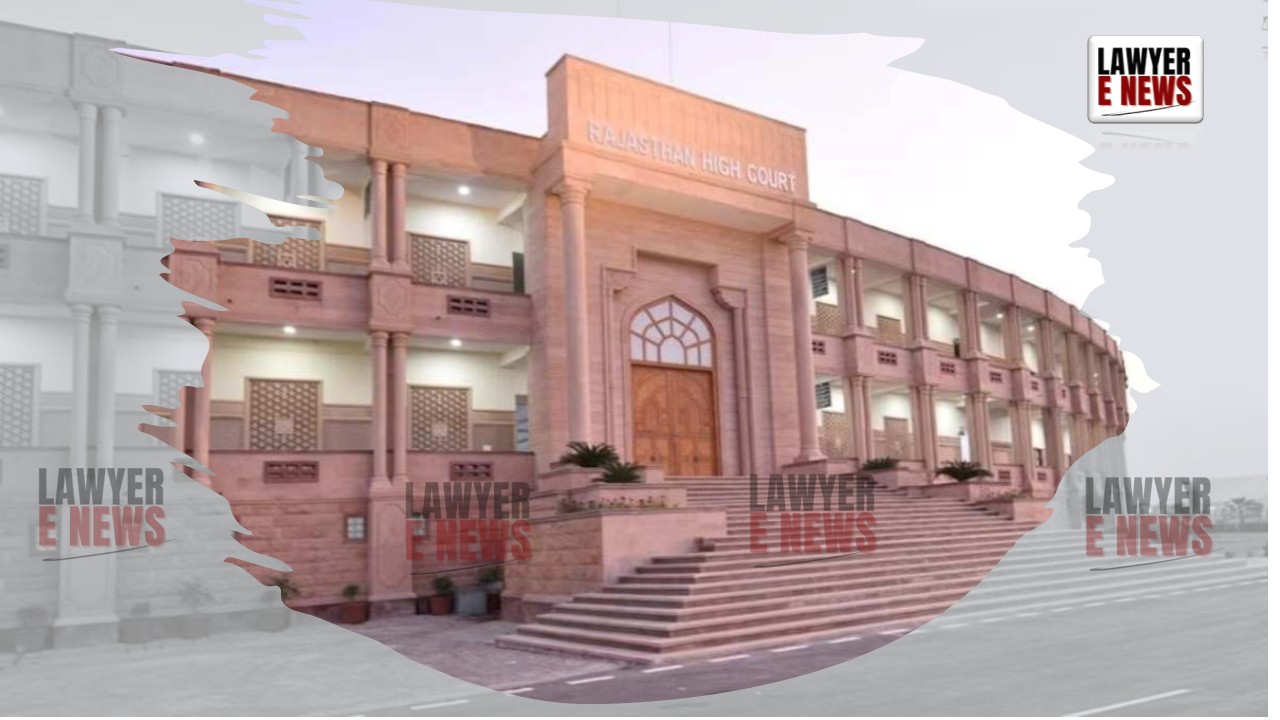-
by Admin
15 February 2026 5:35 AM



The High Court quashes the conviction of the accused under Sections 13(1)(d)(i) and 13(2) of the Prevention of Corruption Act, 1988, and Section 161 IPC, citing biased investigation.
The Rajasthan High Court has overturned the conviction of Sri Lal, who was previously found guilty of corruption charges. The judgment, delivered by Justice Ganesh Ram Meena on May 22, 2024, emphasized the prejudicial nature of the investigation, which was conducted by the same officer who led the trap proceedings. This ruling highlights significant procedural lapses in the handling of the case by the Anti-Corruption Department.
The court focused on the inherent bias in the investigation process. Justice Meena observed, "Since the trap proceedings were conducted by Mr. Gopilal Sharma, Police Inspector, ACD, Kota, who also led the investigation, there was an evident conflict of interest. Such an officer will always try to justify the trap proceedings he led, which compromises the fairness of the investigation". This dual role played by Inspector Sharma was deemed to have prejudiced the case against the accused, leading to the vitiation of the entire investigation.
The court cited the Supreme Court's stance that bias or prejudice must be evaluated on a case-by-case basis. In this instance, the fact that the same officer was both the complainant and investigator led to a reasonable apprehension of bias. This situation was seen as inherently unfair and damaging to the accused's right to a fair trial.
The High Court found that the trial court had erroneously convicted the accused under sections of the new Act of 1988, which were not applicable at the time the offense was committed. Justice Meena clarified, "The accused appellant cannot be convicted for offences under sections 13(1)(d)(i) read with section 13(2) of the new Act of 1988, as he was originally charged under the old Act of 1947".
The judgment underscored the importance of adhering to procedural fairness and the implications of biased investigations. It reiterated that any investigation must be conducted impartially to uphold the integrity of the judicial process. The court stated, "An investigation led by the same officer who conducted the trap cannot be considered fair and impartial. This bias renders the investigation null and void".
Justice Ganesh Ram Meena noted, "The investigation by Mr. Gopilal Sharma, who was the trap leader, has caused prejudice to the case of the accused appellant. Such an investigation cannot be said to be fair and impartial". This critical observation formed the basis for quashing the charges and the subsequent conviction.
The Rajasthan High Court's decision to overturn the conviction in this corruption case underscores the judiciary's commitment to fair and unbiased investigations. By setting aside the conviction and quashing the charges, the court has sent a strong message about the necessity of impartiality in legal proceedings. This landmark judgment is expected to influence future cases, ensuring that procedural fairness is maintained in the justice system.
Date of Decision: May 22, 2024
